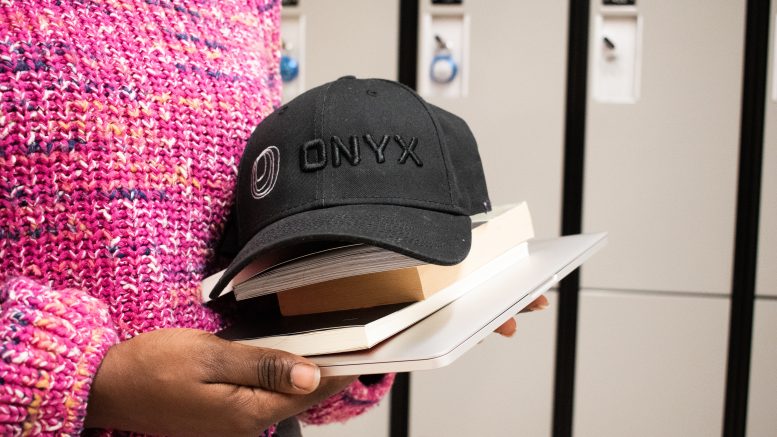The Onyx Initiative — an organization that aims to assist in the career development of Black post-secondary students and recent graduates — held an information session over Zoom with the University of Manitoba last Tuesday.
The event was initially set to occur several weeks ago, but had to be rescheduled.
Lisa MacPherson, the Career Services lead co-ordinator at the U of M, noted that many Black students at U of M are international students.
“There can be a range of unique career development challenges for international students who are studying in Canada connected to employment [and] understanding work culture,” she said.
The U of M began partnering with the Onyx Initiative in 2021, and Career Services soon noticed that the two groups had a number of “parallel programs,” including those involving career mentorship.
“We have a brand new Indigenous career mentor program that just launched at U of M Career Services this September, and ultimately we know that there are folks who are interested in mentoring maybe across more than one program,” MacPherson said.
“So in our newsletter that went out this summer to our career mentors, we did highlight Onyx as something that perhaps our current mentors might also want to take part in.”
Onyx Initiative executive director Nigela Purboo and her husband Wayne Purboo founded the organization following the wave of protests against the killing of George Floyd in 2020.
“We were deeply troubled by the adverse impact the pervasive incidences of racial injustice, systemic inequality, social and political unrest and the murder of George Floyd was having on us, our family and a massive number of people,” Nigela Purboo said in an email to the Manitoban.
She explained that while she and her husband had long been engaged with philanthropic efforts to support health care and education, the “gravity of the situation” made them realize they needed to do more.
They chose to focus their efforts on challenging systemic gaps in the corporate recruitment of Black post-secondary students and recent graduates in Canada by strengthening partnerships between the community and various corporate and educational institutions.
At the U of M info session, Onyx’s director of outreach Simone Rennie noted that when Onyx brought its concerns to potential corporate partners, companies expressed that they had difficulty finding Black candidates to hire.
“When they looked within their own corporations, they just weren’t seeing enough executive leaders in management that were Black that could potentially be mentors, which they agreed was a problem,” she explained.
Rennie said that Onyx’s goal was to get Black students into the corporate world “straight from university.”
“Then we could actually begin to get them into roles where they could root themselves, plant themselves, grow, be retained and promoted or advanced within those roles,” she said.
Any student who identifies as Black and who is currently enrolled in a Canadian post-secondary institution — or who has graduated within the past 12 months — may apply for the program. The program is free of charge, and offers paid internships and positions.
If accepted, students receive access to online courses on professional development, networking opportunities and internships, as well as mentorship from experienced professionals.
While Purboo said that she did not want to generalize the experiences of Black university students and recent graduates, “especially since our community is often positioned as a monolith that thinks and acts the same way,” she noted that research has shown some consistent challenges facing Black students in Canada from various cultures.
Purboo explained that the biggest hurdles Black students have to jump are “a lack of awareness about career opportunities in their field of study, a lack of access to key decision-makers in corporate Canada and a minimal number of professional mentors and coaches.”
“In short, many don’t have the social capital or the network of people around them to open doors and help increase awareness about opportunities and diverse paths.”
Purboo said that Onyx is not only focused on providing opportunities for Black students, but also wants to ensure that they retain their positions and receive promotions.
“A significant number of Black employees do not end up staying at different companies because they are not promoted and/or the culture is not welcoming or inclusive,” she explained.
Rennie noted that membership with Onyx helps students’ applications get noticed by corporate employers, who may have hundreds of resumes to sort through.
“At Onyx, because these companies are here to just see you, you are already at the top of their list,” she said.
Maeesha Mahbub, a marketing intern for Onyx, shared stories of her experience with the organization as part of the info session. She said that the relationship between Onyx and these potential employers reduced her anxiety about how she would be treated in the application process.
“There’s a certain level of comfort that comes with knowing that these employers are here for you,” Mahbub said.
80 per cent of Onyx’s funding comes from the corporate partners who are looking to hire candidates from the initiative. These partners include numerous major corporations such as Amazon, Bell, TD and Sobeys.
Graduates of the program will receive certification and ongoing mentorship following job placement.
The program currently accepts 200 applicants a year, but the organization intends to increase this number as it grows and expands its capacity. Rennie said that Onyx has recruited about 500 scholars in total so far, and is hoping to recruit another 500.
The initiative’s name is inspired by the Onyx stone — a semiprecious gem that is often black in colour. Purboo explained that the stone is not rare, which symbolizes the fact that “qualified Black students are also not rare, but bountiful.”
“For Wayne, our team and myself it’s simple — anyone seeking meaningful career opportunities, who have the skills and qualifications to fulfil the roles, should have equal access to do so.”




